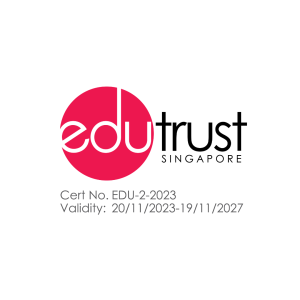Unit description
Advanced Web Programming
This is an advanced unit in Internet and Web technologies, intended to develop technical understanding and practical experience in web application development. The focus of this unit is to develop skills for constructing interactive and data-driven web applications that are both efficient and scalable. Topics include scalable web applications with cloud computing, Node.js, web services and XML technologies.
Databases
This unit focuses on database design, implementation and management. Topics include data modelling, database administration, logical and physical database design, non-relational databases, recovery, relational model, security, standard query language (SQL) and transaction management. The theory material is complemented by practical work using common database management systems.
Information Technology Project Management
This unit identifies, explains and explores a project management approach to information and communications technology (ICT) systems development. In particular, the content is specifically designed to deliver practical insights into managing and coordinating the activities of an ICT project.
Each topic in the unit covers content that explains the journey from project initiation to project closure, and students can gain an understanding of these issues by assessing and making decisions about a real-world scenario. As a part of this knowledge and skill development, students will learn about key aspects of cost management, procurement management, project analysis, project integration management (PIM), quality management, resource management, risk management, scheduling, scope management, and stakeholder and communications management. Additionally, students can gain an understanding of key documentation and industry standards, which can help them in their careers.
Introduction to ICT Research Methods
This unit provides an introduction to research in the information and communications technology (ICT) discipline. It explores the kinds of research questions addressed in ICT research and provides an opportunity for students to understand the broad range of research approaches used in ICT research including action research, case study research, design research, experimental research and survey research.
Students will develop both research and project management skills, and gain the knowledge and skills needed to critically evaluate the ICT research literature.
IT Professional Practice Project
Students in this team-based unit will use information technology (IT) approaches to solve real-world problems from a range of domains. The creation of relevant project deliverables will require students to build upon skills developed during their studies. They will learn to appreciate the interdisciplinary nature of their project and how the skills of team members from different IT majors are required to solve complex problems. Project management and communication with clients and other stakeholders in a professional manner will be emphasised.
Mobile Application Development
This unit focuses on mobile application development using mobile development techniques and environments. Topics covered include app life cycle, small device programming, platform architecture, including Google Android, Apple iOS and Microsoft Windows Phone, web applications for mobile and cross-platform development.
Principles of Computer Science
This unit is designed to develop problem-solving and programme design skills by using an object-oriented programming language. Major topics include algorithm design, procedural abstractions, use of libraries as collection of black-box code modules, the concepts of pre- and post conditions, strings, arrays, an introduction to object-oriented concepts including data abstraction, encapsulation, classes and object references, inheritance, introduction to recursion, streams and file input and output, and the definition and use of common classes — lists, stack and queues.
Software Development Frameworks
This unit aims to provide a general understanding of software development frameworks, and the practical experience and skills in using an important software development framework, with an emphasis on language interoperability, platform independence and software reuse, using Microsoft .NET Framework. The topics include Common Language Runtime, .NET Framework Class Library, C# and other .NET languages, and application packaging and deployment. It also discusses the history and background of .NET and its relationship with J2EE.
Systems Analysis and Design
This unit introduces methods and techniques for analysing problematic organisational situations, particularly those leading to the development of an information system, and it draws on both technical and organisational materials to provide the knowledge and skills necessary to design and implement an operational system.
Web and Mobile Computing
This unit provides an intermediate technical understanding and practical experience in developing web and mobile applications for both traditional computer systems and mobile devices. The topics include the design and implementation of web and mobile applications using languages, tools and technologies such as HTML, CSS, JavaScript, AJAX, Apache Cordova, PHP, JSON, MySQL, administration of web servers on a Unix system and an introduction to web security.





